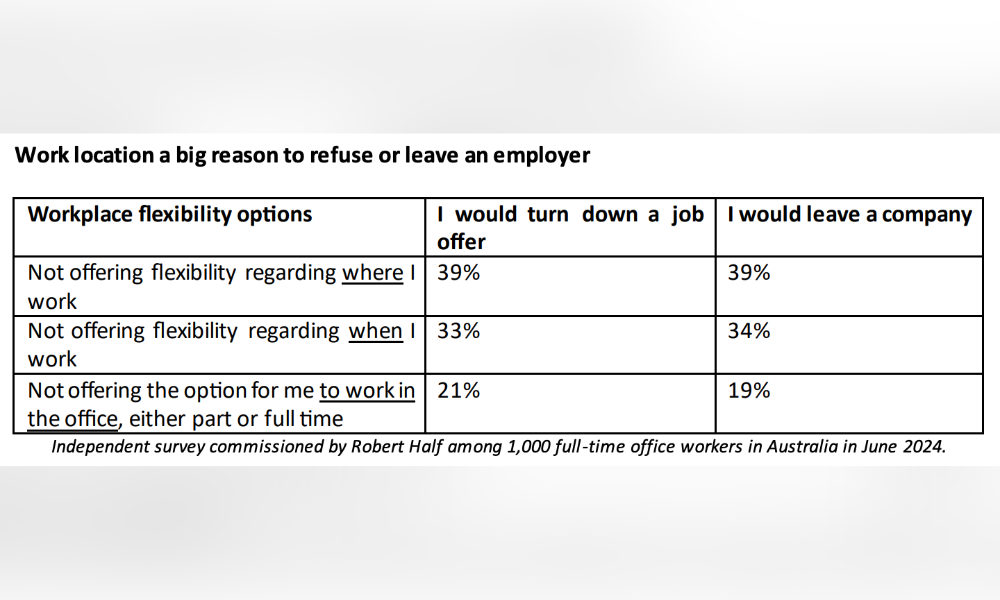
'The future of work is not about returning to the past. It's about finding new and innovative ways to meet the needs of both employers and employees'

More than a third of employees in Australia will leave a company if it's not offering the flexibility that they desire, according to a new report, which came in the wake of growing office-return policies across the world.
Robert Half's poll among 1,000 full-time office workers in Australia found that more than a third will leave the company (39%) and will turn down a job offer (39%) if it does not offer flexibility on where they want to work.
Around a third of employees also said they would leave a company (34%) and would turn down a job offer if the company does not offer flexibility on when they want to work.

Source: Robert Half
The findings indicate that flexibility remains key to retaining and attracting top talent in Australia, according to Nicole Gorton, director at Robert Half.
"The future of work is not about returning to the past. It's about finding new and innovative ways to meet the needs of both employers and employees," Gorton said in a statement. "Depending on the industry and business operations, a hybrid model that combines in-office collaboration with remote flexibility can be a win-win solution for both parties."
Robert Half's findings came as more employers, such as Amazon and Tabcorp, order their employees back on-site after years of implementing remote and hybrid work arrangements during the pandemic.
The New South Wales government also recently ordered its public servants back to the office, citing the benefits of a "shared" experience of being physically present in the workplace.
Robert Half, however, found that many workers believe they "deserve a premium" for giving up flexibility and autonomy from remote work.
According to the findings, 44% of employees would be willing to return to the office full time if they were offered a salary premium. The salary premiums that they would accept range from:
"Many workers believe they deserve a premium for giving up the flexibility and autonomy of remote work due to commuting costs, potential childcare expenses and the loss of personal time, which many consider are all factors that contribute to the financial burden of returning to the office full-time," Gorton said.
But for employers who might not be able to afford to offer a salary premium, Gorton suggested taking steps to improve the office environment.
"Employers can instead focus on enhancing the office environment, offering career development opportunities, and highlighting the benefits of an in-person work arrangement to make the return to the office more appealing," she said.